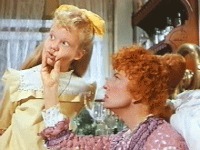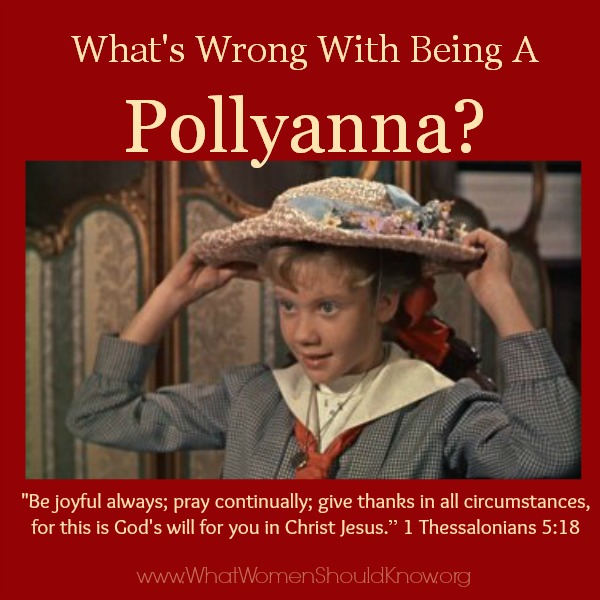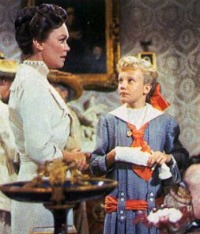I’ve got to tell you, I cringe every time I hear this sweet girl’s name used as an insult. I get why people do it. I realize that — regardless of its origin — the word “pollyanna” has become derogatory term today. It typically describes a person who is naively optimistic, intentionally blind to unpleasant truths, or willfully, woefully out of touch with the harsh realities of life.
But if you’ve ever read the original novel written by Eleanor H. Porter or seen the Disney movie version featuring actress Hayley Mills, then you know better. So much better.
Porter’s Pollyana is a little girl whose minister-father has taught her from a very early age to cultivate in her heart “an attitude of gratitude.”
“Be joyful always; pray continually; give thanks in all circumstances, for this is God’s will for you in Christ Jesus.” (1 Thessalonians 5:18)
Together, father and daughter play “the glad game,” in which they try to help each other find something to be glad about or grateful for in every situation, no matter how difficult or unpleasant it may at first seem. Pollyana’s father also teaches his daughter an important lesson that he confesses he had to learn the hard way: To always look for the good in others, rather than focus on their faults and flaws. It’s something that has helped him become a better pastor and person.
As the story unfolds, the young girl experiences more than her fair share of heartache. Both of her beloved parents die, and she’s sent to live with a wealthy aunt she’s never met before – a cold and distant woman who dominates the social structure of an unhappy and unfriendly town. But even in this unwelcoming environment, surrounded by negative, complaining, miserable people, Pollyana proves that her spirit cannot be stifled or subdued. She daily lives out the truth of Philippians 4:4-7:
There’s a difference between pretending everything is fine, and acknowledging evil, but choosing to focus on good — and on God. Trusting in His sovereignty, His faithfulness, His love. That’s what a true Pollyanna does.
Just as her father taught her, Pollyana looks for the good in everyone and everything – and she finds it! She brings out the best in everyone from her aunt’s housekeeper to the local doctor, the mayor, the minister, even the town miser! She teaches these new friends how to play “the glad game.” Her enthusiasm is so contagious that it spreads to from one person to another and another. Even her hard-hearted aunt can’t help but soften in response to Pollyana’s steadfast determination to rejoice and be glad.
“Do not be overcome by evil, but overcome evil with good.” Romans 12:21
In the end, when Pollyana faces a loss that — for once — threatens to overwhelm even her resolutely cheerful spirit, the townspeople rally around her. One by one they share with her how she has made a difference in their lives. They repeat to her the very words she once said to them – words of love and friendship, hope and faith. Words that have come from a thankful heart, a joyful heart.
You know it’s not just a charming fictional story. You and I have met people like Pollyanna before. We know they exist. People who look for the good in others, people who comfort and encourage and inspire others. People who cheerfully choose hope and faith, love and joy — despite their circumstances.
It’s a beautiful thing.
So today I’m going to proudly be a “pollyanna!” I’m going to play the “glad game” and be thankful for as many things I can think of… including my crutches — which I actually do need, even if Pollyanna didn’t need hers ;)
It sure beats drowning in misery and self-pity!










